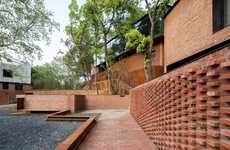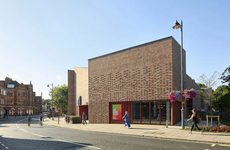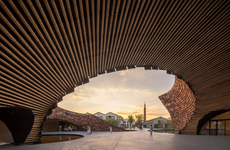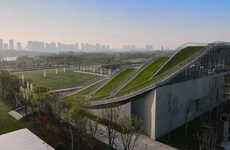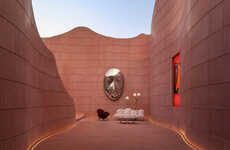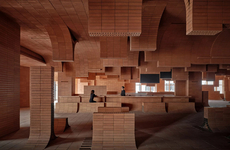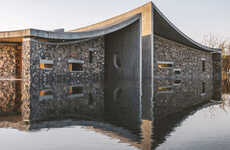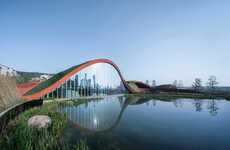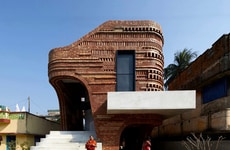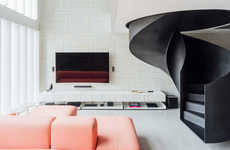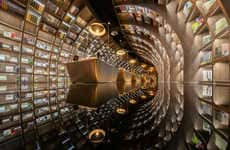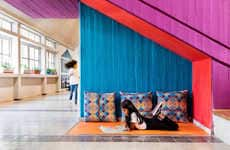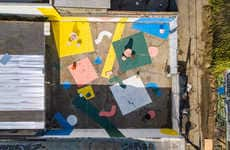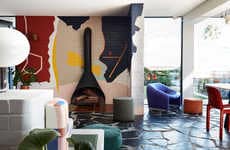
Interval Architects Use Red Brick Cladding to Commemorate This Design
Kalin Ned — March 4, 2019 — Art & Design
References: interval-architects & dezeen
Red brick cladding is a popular choice for rustic-style exteriors but its instance in this building by Interval Architects bears a more in-depth meaning. The structure is situated in Hengshui, China and is the city's new botanic art center -- complete with an observational tower and a multitude of exhibition spaces. The site is surrounded by wetlands.
The new public destination occupies the space of an industrial building which was "abandoned following the introduction of legislation banning the firing of clay bricks." Shanghai-based studio Interval Architects sought out to subtly reference the building's history through a number of choices that considered form and material. One of these design decisions was the red brick cladding and another instance is contianed in the stoic observation tower that "recalls the kiln's landmark chimney."
Photo Credits: Zhi Geng
The new public destination occupies the space of an industrial building which was "abandoned following the introduction of legislation banning the firing of clay bricks." Shanghai-based studio Interval Architects sought out to subtly reference the building's history through a number of choices that considered form and material. One of these design decisions was the red brick cladding and another instance is contianed in the stoic observation tower that "recalls the kiln's landmark chimney."
Photo Credits: Zhi Geng
Trend Themes
1. Red-brick Cladding Design - Designing futuristic and contemporary buildings with a subtle reference to history creates a unique and captivating aesthetic.
2. Botanic Art Centers - The advent of Botanic Art Centers showcases the innovative use of modern technology and horticulture with historic architectural design principles.
3. Observational Tower Architecture - Observational towers are becoming increasingly popular in contemporary buildings for their practicality and significant aesthetic appeal.
Industry Implications
1. Architecture Industry - The architecture industry can capitalize on the potential for creatively implementing historic design elements and modern technologies in constructing innovative public spaces.
2. Tourism Industry - The tourism industry can benefit by promoting Botanic Art Centers as new public destinations that offer an aesthetic as well as educational experience.
3. Horticulture Industry - The horticulture industry can utilize the trend of Botanic Art Centers to showcase and promote new and rare plant species in aesthetically unique public spaces.
1
Score
Popularity
Activity
Freshness

